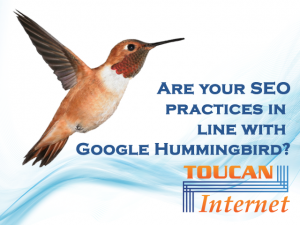Your New Website – Have you failed at the last hurdle?
So your website has been built and properly optimised for the search engines, directories and local search tools – Job Done!
No, more like Journey Started to greater ROI.
During the build of your site, you’d have commissioned a design that was in line with your brand and visual identity, you’d have research the most effective keywords used for your market and then worked with the SEO team and the copywriter to maximise the search engine results, then you’ll have launched the site, normally to a fanfare and great accolades.
The final hurdle is seeing how it fares out in the big wide world as despite doing everything according to the rule book there are still pot holes to avoid. Avoid these and turn your great website into a star performer.
“You really don’t want to be scratching your heads in six months from the website launch
wondering why it’s not performing and regretting the investment.”
Considerations for an effective website:
- Spotting and disavowing toxic backlinks that will damage your site’s reputation
- Mapping missing landing pages from valuable legacy backlinks to new pages
- Spotting and correcting tags and titles with insufficient or poor content
- Correcting blacklisting by association with a tainted server
- Correcting missing or incorrect site maps
- Removing false Google reporting due to bots
- Advising Google of remedial work on items completed that it flagged up as needing attention
- Spotting trends in:
- Falling Smartphone audiences
- Poor social media engagements once on the site is published
- Backlinking sites
- Internal cross linking on new pages
- Search terms that are performing well and those missing the mark so you can apply more suitable content and pages
- Security issues
- Changes in Google’s SERP’s algorithm – playing fair and by the rules is important!
“playing fair and by the rules is important!”
There’s a raft of checks and feedback to be done periodically to make sure you’re getting the best from your investment. This analytical work is not normally the domain of your marketing company, they normally do a great job with content provision, and inbound marketing with blog articles and social media strategy, but do not major on the mechanics that underpin the entire site.
The above are just a few of the many review items website owners who are earnest about being the best that they can be online should be actively monitoring and acting upon. Post launch of your website, just one or two of these items can seriously impair a website’s performance. It’s such a shame to see website failure or significant underperformance when such blocking errors are not spotted and the owners are unaware of how much they could get from their investment.
“be the best that you can be online”
The business message here is find someone to look after the health of your website and manage its performance.
About the Author
Simon Thomas is the lead partner at Toucan Internet LLP who have provided progressive web development and online marketing resources to clients since 1997. Simon also has 20 years direct marketing experience pre-internet and provides a unique blend of innovative advice based on experience and an informed understanding of today’s and tomorrow’s technologies.
simon@toucanweb.co.uk
01279 871 694
www.toucanweb.co.uk



